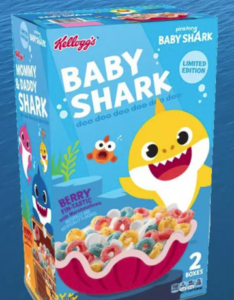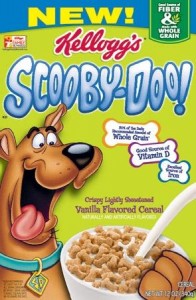I’ve been collecting items on sugars. Here are the first two. Two more will come later this week.
1. The American Academy of Pediatrics Council on Nutrition has new guidance on sugars in schools.
Although access to junk foods remains an issue in schools, the Council blames the problem on students, parents, and staff. It advises:
A positive emphasis on nutritional value, variety,appropriate portion, and encouragement for a steady improvement in quality will be a more effective approach for improving nutrition and health than simply advocating for the elimination of added sugars.
Really? Evidence, please.
I ask because Kellogg could not be happier with this approach. A little sugar, it says, may help kids eat more nutritious foods.
Surely it’s not a coincidence that one of the authors discloses receiving support from the National Dairy Council and the American Dairy Association, and the other receives support from the Nestle Nutrition Institute.
In any case, we aren’t talking about a little sugar in schools. We are talking about candy, cupcakes, and drinks brought in for birthdays, treats, and after school celebrations.
2. Sugar in the Trans Pacific Partnership (TPP)
This, you will of course recall, is the controversial multinational trade agreement currently under negotiation (see my previous post on this topic).
Japan wants to keep its tariff on sugar.
It now appears that the Japanese sugar industry gave a 1 million yen donation to a political group that supports Minister of Agriculture Koya Nishikawa, just before he became involved in the TPP talks in 2013.
As one commentator put it, considering Nishikawa’s central role in the TPP negotiations,
his receipt of a donation from an industry group brings his morals as a politician into question. Nishikawa stated that he returned the donation in light of his capacity as agricultural minister, but this is unlikely to resolve the situation…In March 2013, it was announced that the Japan Sugar Refiners’ Association would receive 1.3 billion yen in subsidies under a Ministry of Agriculture, Forestry and Fisheries’ project.
At the very least, this situation looks like blatant conflict of interest.



 Next, see what’s happening to breakfast from the point of view of the food industry.
Next, see what’s happening to breakfast from the point of view of the food industry.




